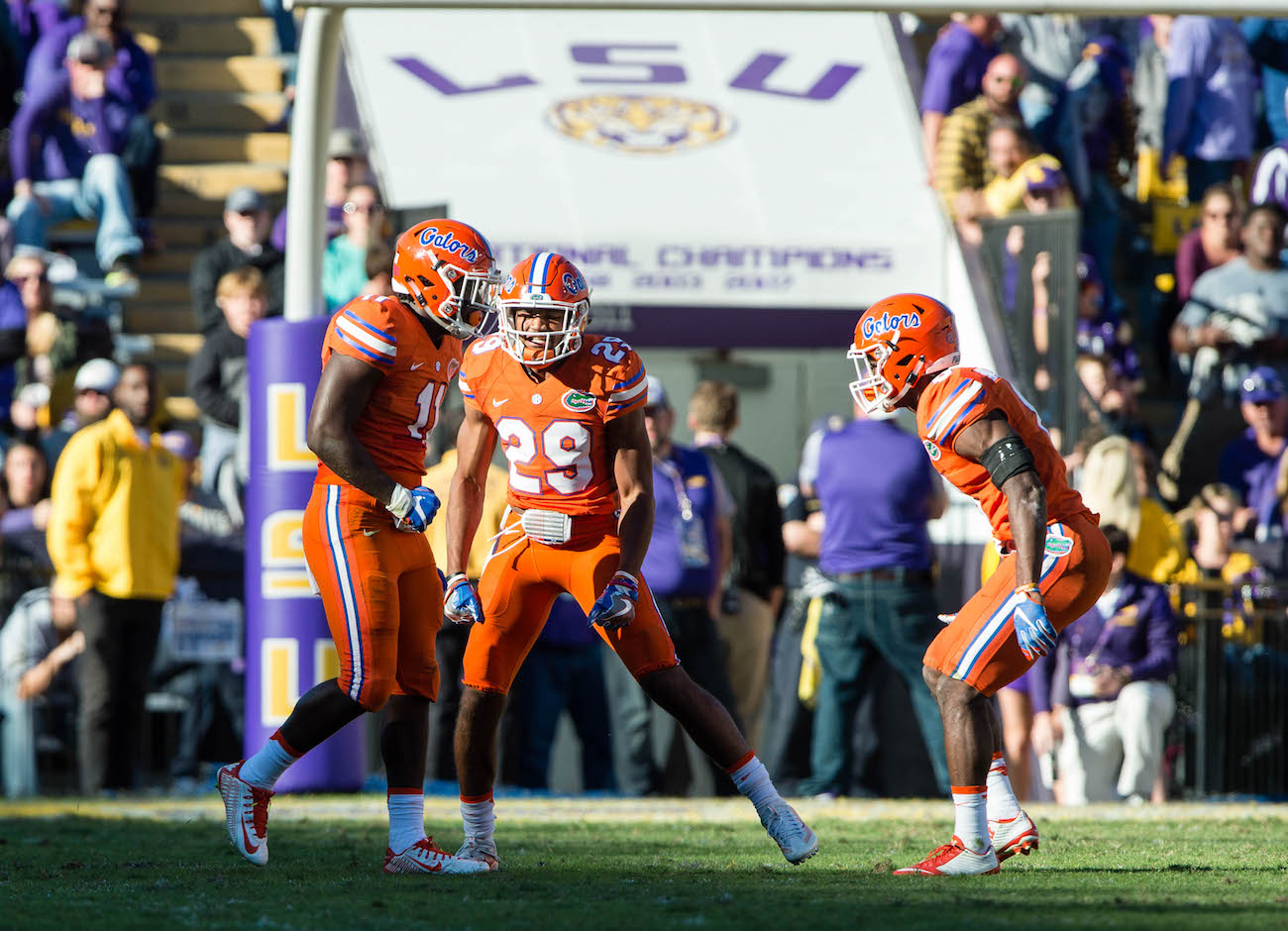
The game between LSU and Florida will kick off as scheduled Saturday in Gainesville, Fla.
The lead-up to the latest installment of this annual rivalry has been far less eventful than last year’s. The Tigers (3-2, 0-1 in the SEC) and the No. 21 Gators (3-1, 3-0) finally meet in The Swamp, 364 days after they were originally scheduled to.
Last year’s Oct. 8 meeting was postponed because of the threat Hurricane Matthew posed to Florida, leading to complicated and occasionally contentious negotiations to try and reschedule it.
The Tigers were flexible in trying to play the game on the date scheduled, but by the time Florida canceled the game on Thursday it was too late to find another venue for that weekend.
The teams did not have matching open dates, so both bought out non-conference foes — LSU dumping South Alabama and Florida jettisoning Presbyterian — so they could play Nov. 19.
LSU was adamant about not losing a home date, which would have happened if it canceled the South Alabama game and traveled to Gainesville.
Eventually, with SEC Commissioner Greg Sankey mediating peace talks, the schools agreed to move that game to Baton Rouge and move this year’s game to Gainesville.
All’s well that ends well, sort of.
Both schools’ athletic directors issued statements showing their dissatisfaction with their counterparts.
The Gators’ Jeremy Foley said, “LSU was never a true partner in our discussions.”
The Tigers’ Joe Alleva went the passive-aggressive route: “Historically, we have always enjoyed a great relationship with Florida. We have great respect for their institution and their football program. I hope that we can all learn from this experience and as a league, be in a better position to deal with these situations in the future.”
LSU entered the rescheduled game with a 4-1 record in its “Season of Orgeron,” which it had dubbed the final eight (seven after the USA cancellation) regular-season games after Ed Orgeron was named interim head coach when Les Miles was fired after a 2-2 start.
The change of venue figured to be a boost for the 16th-ranked Tigers, who were in position to wrap up a berth in the Allstate Sugar Bowl by beating No. 21 Florida, and for Orgeron, who was auditioning for the full-time gig as LSU head coach.
If the Nov. 19 game had been played at The Swamp, The Tigers would have played three SEC road games in a 13-day stretch.
The Gators were clinging to a 16-10 lead when they stopped LSU from the Florida 1-yard line on the final two plays of the game.
“When they won the game, they celebrated on our field,” LSU defensive end Rashard Lawrence told NOLA.com|The Times-Picayune this week. “I felt disrespected.”
Now it’s Florida that is at home and seemingly building toward a potentially significant post-season destination.
Meanwhile, LSU is floundering after losing two of its last three, though it looks like three key Tigers — running back Derrius Guice, Lawrence and defensive tackle Ed Alexander — will return from injury for this game.
LSU’s recent play gives it enough to worry about without having to deal with a flare-up from last year’s developments. Besides, LSU-Florida is heated enough without non-football stuff being thrown into the mix like it was last year.
Orgeron, who got the full-time job despite the loss to the Gators, has taken a proactive approach by banning his players from engaging on social media this week.
By the way, there is one way in which things might have gotten better for LSU since last year’s scheduling controversy.
LSU paid South Alabama $1.5 million not to play last year, paving the way for the loss to Florida.
But last week’s loss to Troy in Tiger Stadium cost the Tigers less than a $1 million in an appearance fee.
So there’s that.
Les East is a New Orleans-based football writer who covers LSU for SaturdayDownSouth.com. Follow him on Twitter @Les_East.







